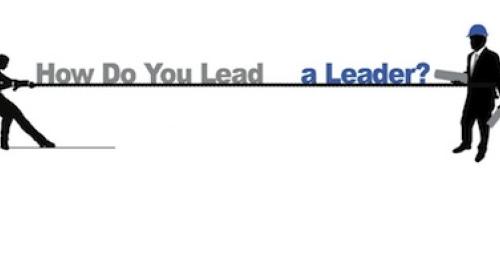| Contact Scott Sedam via e-mail at scott@TRUEN.com
|
Imagine this. There are about 50 significant builders in your market and here’s where you stand: Out of 50, you are a clear number one in customer satisfaction as measured by an independent third party. There is no citywide survey of suppliers and trades, but in a city that is experiencing severe labor shortages, you have none - because they all want to work for you. You have fantastic margins, among the very best in your company and, by inference, at the very top of your local market. And you have really good people. There is virtually no turnover.
I’m describing a fantasyland, right? Been staying up too late, too much traveling, and too much time talking with other consultant-types. Sure, I’d believe this was a fantasy, too, except that I know the guy. I’ve seen his operation. And I’ve known him long enough to know that what I described is not just real, it has been that way for almost ten years. No statistical flukes here.
I’ll call him Chuck. I’d like to use his real name, but I can’t - for several reasons. First, "Chuck" is genuinely humble. He does not like to take credit for his achievements and lays all of the accolades on his team. Second, if you knew the company, you might make excuses about why it is different for them - or for you. Third, if you knew the city, you’d assume that things must be really different there and this couldn’t possibly apply to you. No, I think this will work best if I leave you wondering, if Chuck might just be in your town, stealing customers and trades from your company. Then maybe you’ll think about it a little more.
To start with, Chuck had one advantage over most of his competition. He started working construction in high school and went to trade school to become a framer and carpenter. While working as a trade, he became a superintendent because no one else wanted the job. As a result, he has an acute sensitivity to the needs and sensibilities of the on-site "working people" (as he calls them) to this day, 30 years later. Gradually he moved up until he became responsible for all construction in a building company doing over 600 units a year in his city. He’s had many opportunities to move on and up, but he has chosen to stay where his heart lies.
Last week, I watched him do a presentation. He was asked to talk on how to build effective partnerships with suppliers and trades. Of course, he brought two of his best with him to help him tell the story. As I watched the audience, I realized that they were impressed - the success level Chuck’s company had achieved was indisputable and inarguable - but they were also very disappointed. They had come expecting some great secret to emerge, some magic elixir that they could take back to their own operations and do something miraculous. What Chuck described instead was very basic stuff - done very well.
Chuck described how it all started with a CEO who had an unshakable commitment to quality as both a business strategy and a daily operating philosophy. It’s not a program, he said, it’s just how we do business. Then he described an arduous amount of training done for the builders’ people in all departments.
The audience got a little edgy when he described how, himself conducted the quality and service training courses for the supplier and trade personnel. They asked how he got them to come. He simply said that it had never been a problem. Those of us watching understood that it was the power of Chuck’s personal involvement that made the difference.
Chuck described the frequent training classes the suppliers and trades put on for the builders’ salespeople and how much difference that made to the salespeople and thus, the customers. Then he talked about the Partners’ Council made up of supplier and trade reps and the projects they had worked on that had made a huge impact. Chuck described how all customer feedback data is shared with the trades on an ongoing basis, and how the trades themselves are surveyed for input back to the builder.
And they celebrate. They hold quarterly appreciation breakfasts for supplier and trade personnel, giving out lots of awards and keeping everyone informed about how the company is doing and what its future plans are. They hold barbecues in the subdivisions and work on community service projects together. Nobody screams. It’s against the culture.
Talk Without The Walk
As a reality check, the two suppliers and trades got up to tell the assembled builders their view of Chuck’s operation.
In their view there was Chuck’s company - and everyone else. How they described Chuck’s competitors was a lot of talk and very little walk. Everyone, they said, fought for the privilege to work for Chuck.
And one more thing: Both explained that although they give Chuck’s operation their very best prices, they make the greatest profit working on Chuck’s jobs. The audience looked skeptical. So they went on to explain how the sites are beautifully organized, plans and specifications are always perfectly clear and the schedule is as good as gold. Chuck’s whole organization hummed along like a well-oiled machine.
Chuck sat listening to this, half swelling with pride and half embarrassed. It all seems so simple to him. He can’t conceive that anyone would do it any other way. When I described to him how, as a consultant, I spend a lot of time just trying to get people to open their eyes enough to see the possibility of training their superintendents to a higher standard and treating suppliers and trades as valued partners, Chuck just shakes his head in disbelief. In the end, Chuck concluded that it’s a classic paradigm problem. If you see it, it’s crystal clear. If you don’t, all of the evidence in the world doesn’t shake your bedrock belief that the only way to get suppliers and trades to perform is to harangue, threaten, cajole, manipulate and play one against the other.
A Man Named Bud
In the end, Chuck captured the problem by describing another construction head from his own company - a friend of his, whom I also know. Good guy. Successful. Call him "Bud". About every other month Bud calls Chuck to chat, catch up and compare notes. He says that Bud almost always ends the calls the same way, saying, "Hey, when you gonna break down and share some of your secrets with the rest of us." Chuck always replies, "What secrets? There are no secrets!" to which Bud shoots back a laugh and says, "Yeah right - maybe next time."
As Chuck tells me this story, his face takes on a look caught somewhere between pleading, pain and bemusement. Once again he explains, no, he absolutely insists, that he is the keeper of not a single secret. His organization just does the right things. They do them very well, and they do them every day. And he truly believes that anyone can do it.












